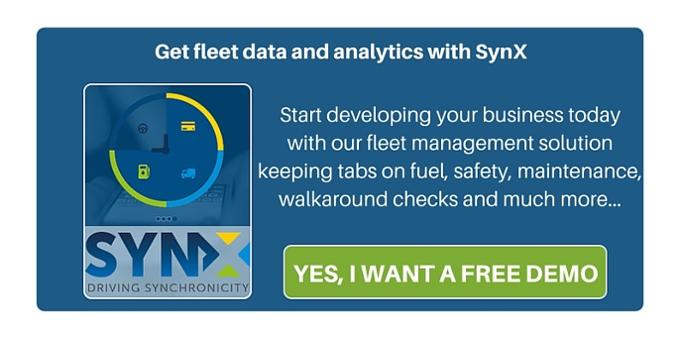
The latest chapter in our A-Z of fleet management series starts with something that definitely does not only apply to business, drivers and vehicles, but virtually to anything. Why then have we decided to associate the word “No” with fleet management? In this field just like any other, saying “No” might be seen as one of the most difficult things to do, especially if you are directing a fleet and need to cope with many different demands and requirements at any given time—but in the end it ultimately comes down to the outcome of fleet operations, how safely it is done and how much you can capitalize on your resources to bring projects to a successful conclusion while saving on your budget.
Saying “no” is defined as disagreeing or not accepting something and this is generally seen as the opposite of positive action. It is something that could cause individuals with low self-confidence to become anxious if pressed to say the opposite of what they really feel in a situation. In some cases this might be valid for the fleet industry, but when we talk about saying “no” we really want to focus on a list of practices that fleet managers need to avoid if they want to achieve a productive outcome.
What then should fleet managers say “no” to?
#1 Making impulsive decisions. When you have budget or time constraints or feel pressure from senior management or stakeholders, it is easy to feel rushed into making a particular decision even though in most cases it doesn’t lead to a great outcome. It is definitely better to have enough fact-based material upon which to make a sound decision, especially when it comes to your vehicles, their performance, the costs they generate and the way they are driven.
#2 Skipping important tasks for lack of time. We all know the same old story of always feeling pressed for time; while we can surely prioritise tasks depending on importance, we cannot simply skip some because they take time, as it might seriously compromise your safety or affect the legal status of your fleet. There might be faster and easier ways of doing things that allow your fleet to stay safe and meet legal requirements.
#3 Getting distracted. Fleet managers can easily get distracted by the amount of tasks they need to deal with, especially if they do not have the technological tools available to process them and help focus on the important things or on the real causes of a problem such as excessive fleet cost, for example. There are surely ways in which you can focus on what is really necessary and also decide how to delegate the less important things.
#4 Wasting time on useless operations. Quite the opposite of #2 but often confused with it, as tasks that are seen as time-consuming are often adjudged useless. But here we are actually talking about operations that are not necessary or can be done in a different, quicker way. If you spend a lot of time planning routes but do not have the tools to help you do it, then you need to look into doing it in a more modern and faster way to save time which can be devoted to other priorities.
#5 Being passive. Some things are just logical, aren’t they, as a matter of fact? Vehicles have so many sources of costs. First and foremost, vehicles need fuel to work. Yes, this is obviously not a revelation, but who said nothing at all can be done about it? You will be surprised how many potential savings might be hidden in your fleet budget that can be returned to the bank balance–just stop being passive when it comes to these issues and take positive action—we are always on hand to help you out.


